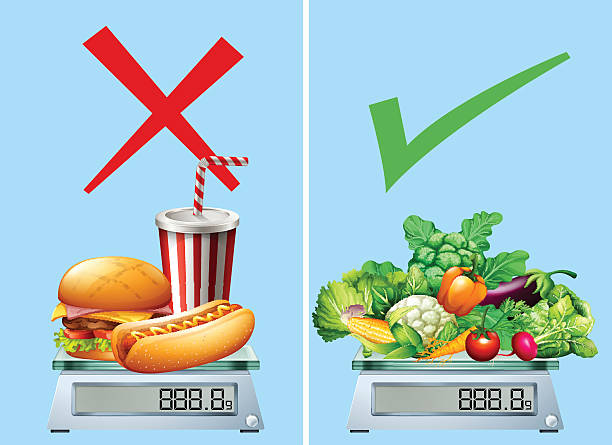Fast food has become a staple of the modern diet, offering convenient and affordable options for meals on the go. However, fast food is often high in calories, fat, salt, and sugar, leading to serious health consequences. Alsoit's no secret that indulging in these quick and tasty meals can have serious consequences for your health. In this article, we will explore the connection between fast food and health, and what you can do to reduce your risk.

The Convenience Trap
One of the primary reasons people turn to fast food is its convenience. In our fast-paced lives, the allure of a quick meal that doesn't require cooking or cleaning up afterward is undeniable. Fast food establishments are everywhere, offering a wide range of options from burgers and fries to tacos, pizzas, and fried chicken.
The Risks of Excessive Fast Food Consumption
While the occasional fast food meal is unlikely to cause significant harm, it's the habit of excessive consumption that raises concerns. Here are some of the risks associated with frequent fast food intake:
1. Poor Nutrition: Fast food is often high in calories, saturated fats, trans fats, salt, and sugar. These foods are typically low in essential nutrients like vitamins, minerals, and dietary fiber. A diet dominated by fast food can lead to nutritional deficiencies.
2. Weight Gain and Obesity: Fast food is calorie-dense and lacks satiety, meaning you can consume a large number of calories without feeling full. This contributes to overeating, weight gain, and an increased risk of obesity.
3. Heart Disease: The high levels of saturated and trans fats in many fast food items can lead to elevated levels of "bad" LDL cholesterol and triglycerides. This increases the risk of heart disease and hypertension.
4. Type 2 Diabetes: Excessive consumption of sugary beverages and high-sugar, high-fat foods is linked to the development of type 2 diabetes. The refined carbohydrates in many fast food items can also lead to blood sugar spikes and crashes.
5. Digestive Problems: Fast food is often low in fiber, which can lead to digestive issues like constipation. The excessive salt in these foods can also contribute to bloating and water retention.
6. Increased Cancer Risk: Some studies have suggested a link between high fast food consumption and an increased risk of certain cancers, though more research is needed in this area.
7. Mental Health: There is evidence that a diet rich in fast food and processed foods may contribute to an increased risk of depression and other mental health issues.
The Importance of Moderation
It's essential to remember that fast food is not inherently evil. The occasional indulgence is perfectly acceptable. The trouble arises when it becomes a staple in your diet. To maintain a healthy relationship with fast food, consider these tips:
-
Balance: Consume fast food in moderation and strive for a balanced diet rich in fruits, vegetables, whole grains, lean proteins, and healthy fats.
-
Portion Control: Opt for smaller sizes or share larger items. Avoid super-sized meals.
-
Smart Choices: Some fast food restaurants offer healthier options like salads, grilled chicken, or yogurt parfaits. Choose these when available.
-
Limit Sugary Drinks: Opt for water, unsweetened tea, or other low-calorie beverages instead of sugary sodas.
-
Meal Prep: Planning and preparing meals at home can help reduce the temptation to eat fast food regularly.
In Conclusion
The connection between fast food and health is undeniable. While it's tempting to enjoy the convenience and taste of these meals, it's crucial to be aware of the risks and consequences. By making informed choices and practicing moderation, you can enjoy fast food without jeopardizing your health. Your body will thank you in the long run.
Author: Nikita Vishnoi BCA
Reviewed by: Dr. Varsha Singh Bhati












